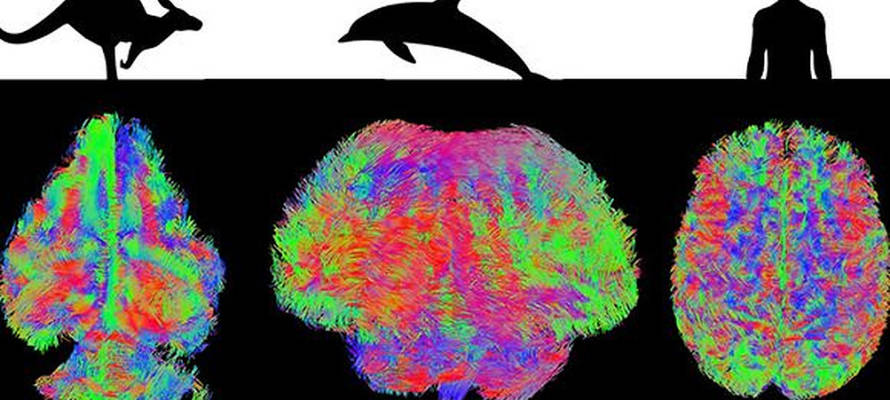Scans of the brains of 130 species of mammals, including humans, reveal striking similarities in brain connectivity in humans and other mammals.
By Yakir Benzion, United With Israel
Researchers at Tel Aviv University conducted the world’s first ever study using MRI scans of the brains of 130 species of mammals.
Their results shot down the old theory that brain connectivity in humans is higher than in other mammals.
It turns out that brain connectivity levels – the efficiency of information transfer through the neural network – are basically equal in all mammals, including humans.
“We discovered that brain connectivity does not depend on either the size or structure of any specific brain,” said Prof. Yaniv Assaf of the School of Neurobiology, Biochemistry and Biophysics. “In other words, the brains of all mammals – from tiny mice through humans to large bulls and dolphins – exhibit equal connectivity, and information travels with the same efficiency within them.”
“Brain connectivity is a central feature, critical to the functioning of the brain. Many scientists have assumed that connectivity in the human brain is significantly higher compared to other animals, as a possible explanation for the superior functioning of the ‘human animal’,” Prof. Assaf said.
“We know that key features are conserved throughout the evolutionary process. Thus, for example, all mammals gave four limbs. In this project we wished to explore the possibility that brain connectivity may be a key feature of this kind – maintained in all mammals regardless of their size or brain structure. To this end we used advanced research tools,” said his colleague, Prof. Yossi Yovel of the School of Zoology.
The researchers found that size doesn’t matter – a tiny bat brain that weighs only 10 grams has the same connectivity as a large human brain. It was the fist time that brains of about 130 different mammals had been MRI-scanned, and the project generated a novel and globally unique database.
The comparison of the scans used tools from mathematics to compare the number of brain synapses a message must cross to get from one location to another in the neural network.
Prof. Assaf explained that although mammal brains all consist of two hemispheres connected in the same way, the four different types of connectivity measurements were discovered to be the same for all mammals, large or small, including humans. The scientists also discovered that there were variations in connectivity not only different species, but also for different individuals within the same species.
“Our study revealed a universal Law: Conservation of Brain Connectivity. This Law denotes that the efficiency of information transfer in the brain’s neural network is equal in all mammals, including humans,” Prof. Assaf said.
The team also realized they need to investigate how different types of brain connectivity may affect various cognitive functions or human capabilities such as sports, music or math.
“Such questions will be addressed in our future research,” Prof. Yovel said.

HELP ISRAELIS BATTLE CORONA!
Donate to the Corona Emergency Relief Fund. Coronavirus has taken a huge toll on the people of Israel. The poor, elderly and ill are most vulnerable.
Israeli soldiers, security officers and medical care providers operate under great danger and risk to life.
Over 1 million Israelis are out of work. Many cannot make ends meet. We provide financial aid, food, medical supplies and more. Funds are distributed where needed most. The time to act is now!
United with Israel extends a special note of appreciation to the Genesis Prize for their generous support.
Do You Love Israel? Make a Donation - Show Your Support!
Donate to vital charities that help protect Israeli citizens and inspire millions around the world to support Israel too!
Now more than ever, Israel needs your help to fight and win the war -- including on the battlefield of public opinion.
Antisemitism, anti-Israel bias and boycotts are out of control. Israel's enemies are inciting terror and violence against innocent Israelis and Jews around the world. Help us fight back!























